Famous for its white sandy beaches, majestic Komodo dragons, and the beautiful island of Bali, Indonesia is a paradise of scattered volcanic islands.
Located in South-East Asia near Malaysia, the country is a highly popular travel destination for millions of tourists each year, many of whom look to escape their busy lifestyles for a tranquil break.
Indonesia is one of the most culturally unique countries in the world and has a population exceeding 261 million people and over 700 languages.
Here are a few must-know facts about Indonesia:
Currency: Indonesian rupiah (Rp)
Official language: Indonesian
Capital City: Jakarta
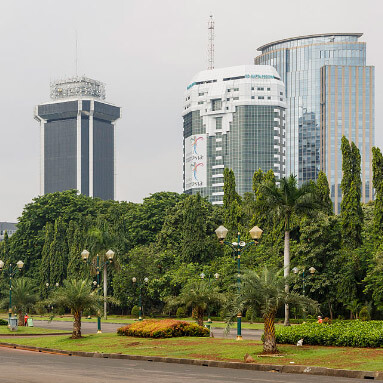
Due to its popularity with tourists, many people mistakenly think Bali is the capital of Indonesia, but the city of Jakarta holds that title. The current population of Jakarta exceeds 10 million, with many of the working-class people being immigrants from other countries in search of work.
The increased population of Jakarta in recent years has led to the city having one of the fastest growing economies in the world. This has resulted in various Fortune 500 companies and other organisations moving to the city, leading to an influx of a great variety of people.
Despite its urban sprawl, Jakarta offers some natural scenery, with over 13% of the city dedicated to green lands to keep the environment intact and add diversity to the otherwise concrete and steel surroundings.
Evidence such as the tools and remains of Homo erectus discovered in Indonesia date back to between 1.5 million and 33000 BCE.
The migration and subsequent settling of the Austronesian people, who still make up a large portion of the population, occurred in around 2000 BCE.
Lush grasslands and soil provided ideal conditions for wet field cultivation such as rice, leading to many flourishing towns and communities in the area. Due to the Srivijaya empire's control of the sea trade in the region between the seventh and 13th centuries, maritime trade boomed in Indonesia. Naval trade relations created from this were a leading factor in the extensive Hindu and Buddhist influences in the country.
Portuguese traders were the first Europeans to officially make contact with native Indonesian people in 1512. The British and Dutch traders soon followed, and in 1602, the Dutch East India Company was established.
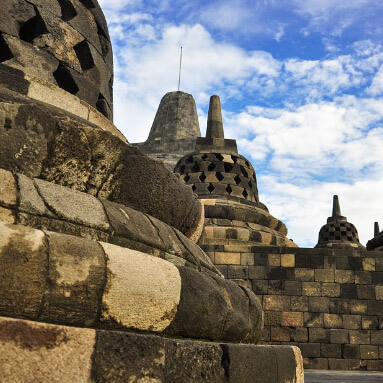
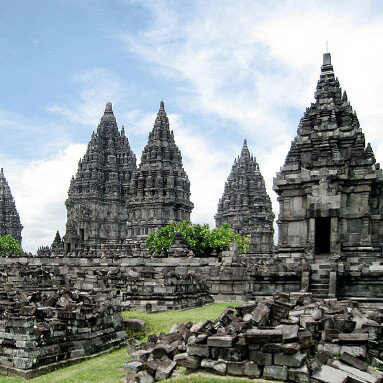
Komodo National Park is at the top of any must-see list when visiting Indonesia. Located in the Komodo, Padar, and Rinca islands, this UNESCO World Heritage Site offers a truly astonishing experience for divers to view one of the world's most treasured marine ecosystems.
Borobudur Temple (Central Java) is the largest Buddhist temple in the world. Constructed using over two million stone blocks, this important cultural site is a marvel to behold and showcases the massive influence of Buddhist traditions in the region.
House of Danar Hadi (Surkarta, Central Java) might sound like something out of Game of Thrones, but is actually a museum that showcases a private collection of handpicked vintage fabrics and textiles displayed beautifully throughout a grand colonial estate. Book a ticket to view this amazing collection in person and consider joining a guided tour for an enlightening experience.
Tip: If you're visiting House of Danar Hadi, note that taking photographs of any of the artwork is not allowed. If you want a keepsake, a shop on the premises sells souvenirs.
Mesjid Raya Baiturrahman is a grand mosque with black domes and pristine white walls in the city of Banda Aceh. A good time to view the mosque is on Friday afternoons during the prayers.
Tip: If you intend to simply view but not partake in the prayers, take care to respect the proceedings without interfering. Also be aware that women are required to wear headscarves.
Banyu Wana Amertha Waterfalls in Bali is a little-known attraction offering a stunning trail through a coffee plantation and village towards several enchanting waterfalls.
Prambanan Temples (Yogyakarta, Central Java) is a collection of over 240 Hindu temples, making it the largest Hindu temple site in Indonesia. Gigantic temples stand alongside smaller ones, making for a truly wondrous experience.
Indonesia offers an array of accommodation types, from luxurious hotels and resorts to simplistic backpacker's hostels and comfortable Airbnb. As expected, pricing depends on where you stay and how near you are to the main attraction.
Browse all the available accommodation options online before visiting and book somewhere to stay that offers you the best value for money or have all the luxuries you could wish for. Compare as many options as possible before booking accommodation in Indonesia.
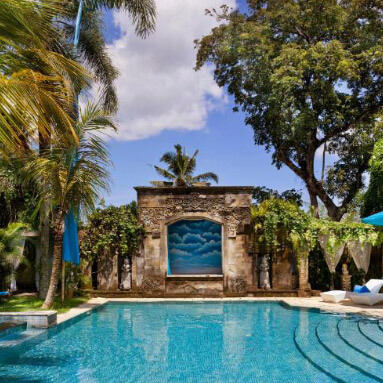
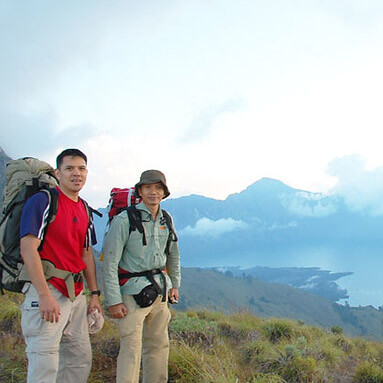
If you're keen on an adventurous hike, the lush jungles of Sumatra are the perfect challenge for you. During your trek through the forest, you'll likely encounter an array of primates including wild orangutan, gibbon, and Thomas leaf monkey.
Tip: This route requires some hiking experience and skill, as the jungle is quite dense and much of the trail consists of steep pathways, roots, and stumps.
If you're into surfing, Indonesia is probably already on your bucket list; Bali is well-known for its massive surfing culture.
Want to view the sunrise from the top of a mountain? If you're daring enough, you can hike to the top of Mount Bromo, an active volcano; the view is well worth it.
Indonesia is a tropical country and the weather is relatively consistent all year round. There are essentially two seasons – wet and dry.
In summer, expect sunny days followed by rain showers and high humidity, with the occasional gust of wind to cool you down. Coastal areas are usually hotter than those inland, with the coast averaging 28 degrees Celsius during the day, while inland areas average 26 degrees Celsius.
Monsoons and typhoons occur in the region, but there are advance weather warning systems to keep people notified of potential safety risks.
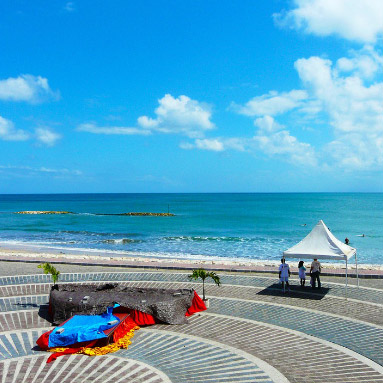
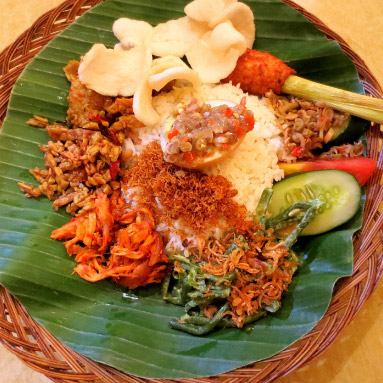
Indonesia offers one of the world's most vibrant and colourful range of cuisines due to strong Indian, Chinese, Middle Eastern, and European influences. The country even boasts an award-winning dish, Rendang (South-East Asian spicy meat), named one of CNN's most delicious foods in the world.
Fresh fruits and vegetables sit alongside colourful and creamy curries and meats, ensuring each meal is a feast. Street vendors and restaurants alike offer unique tastes and combinations of the multiple culinary cultures.
More western-style food is also available, with various fast food outlets scattered across the main cities.
Petty crime, such as pickpocketing and snatch theft, is relatively common in Indonesia. Tourists should also be aware of scammers such as fake taxi services that swindle visitors out of their cash.
Prostitution and pornographic material, although illegal in Indonesia, are widespread.
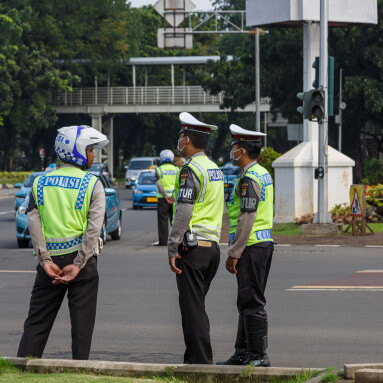
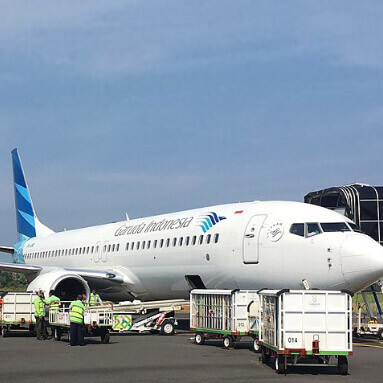
South Africans do not require a tourist visa when travelling to Indonesia and can stay for up to 30 days.
Here are the various ways you can get to and around in Indonesia:
The cities and roads of Indonesia are a mixture of modern infrastructure and rural surroundings. This, and the large population located mainly in the cities, makes for a chaotic driving environment.
You can rent a car in Indonesia from any car rental agency, most of which operate near the international airports, city centres, and landmarks.
Since Indonesia is a collection of islands, various cruise ships make their way to the docks to drop off excited tourists exploring the region.
Current estimates show that Indonesia comprises 13,366 islands and 673 airports, many of which are international, so there are plenty of options when it comes to deciding where you'd like to fly to.
While many of Indonesia's islands are not habitable, it's still not possible to visit all the habitable ones during a single trip; it's best to plan your trip around the specific landmarks you want to see.
The country is home to various religions, including Hinduism, Buddhism, and Christianity. It's a good idea to familiarise yourself with the most common customs of each religion to ensure you can show the proper respect for them all.
The climate is tropical, meaning you'll experience hot and sweaty days. Always carry fresh water and sunscreen to keep you hydrated and protected from the heat.
Although Indonesian is the official language, there are 700 languages spoken in Indonesia. Not everyone speaks or understands English, so learn a few common and important phrases in the languages you're most likely to come across.
The country offers exceptional food and drink; however, it's best to avoid drinking tap water as it's not always potable and stick to bottled water.
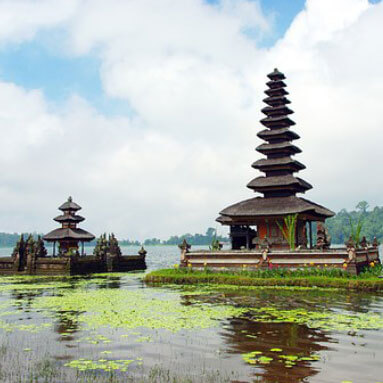
Information provided for informational purposes. Prices quoted correct at the time this article was published.
Sources: Wikipedia, LonelyPlanet, Adventure, Hotels, World Population Review